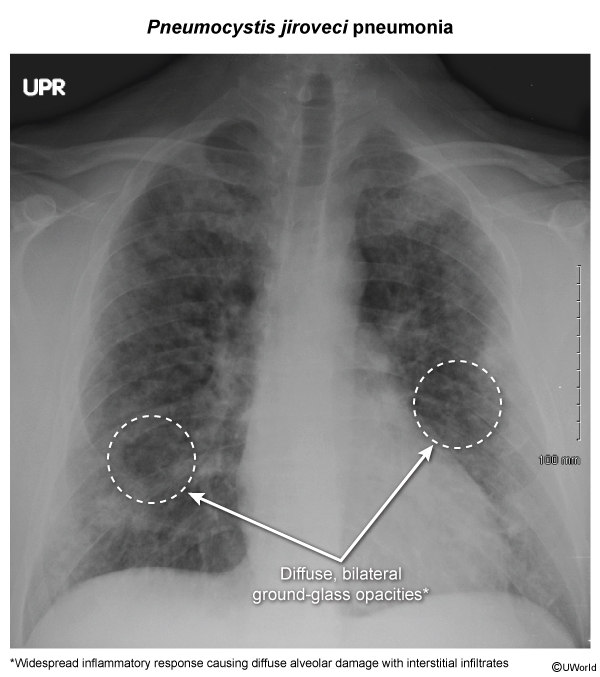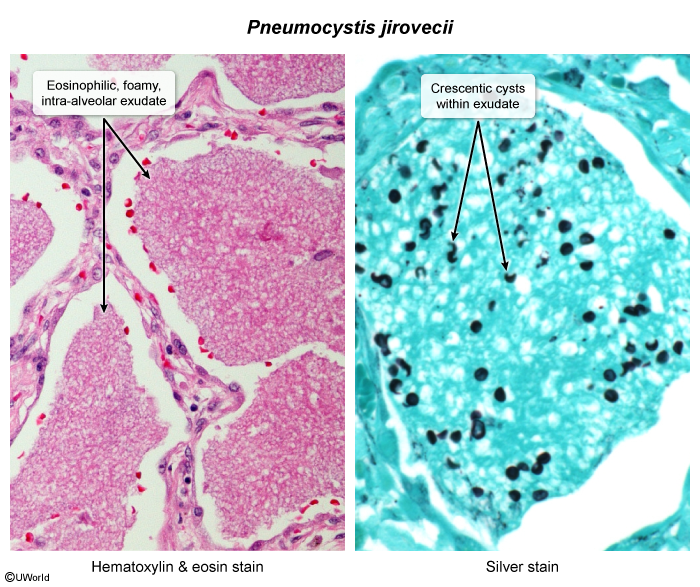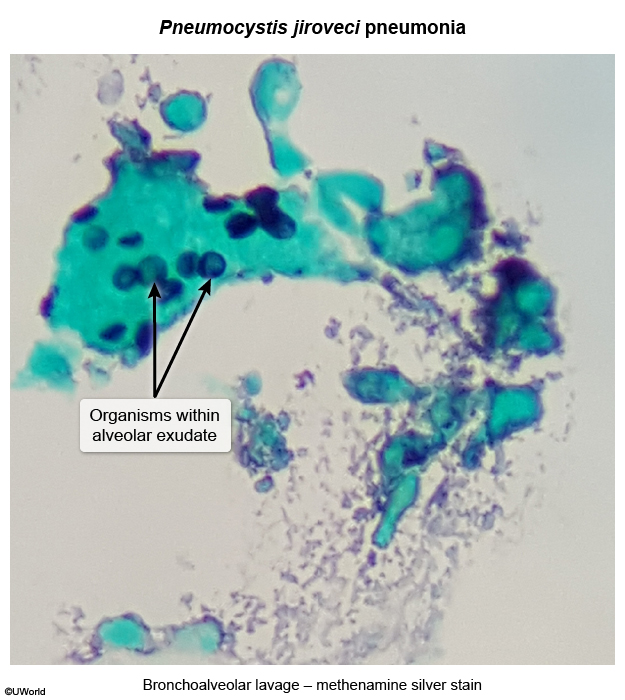Pneumocystis Jirovecii Pneumonia
Article Sections
Introduction
Pneumocystis jirovecii pneumonia (PCP, or sometimes PJP) is an opportunistic infection that primarily affects individuals with weakened immune systems, particularly those with advanced HIV infection or those receiving immunosuppressive therapies. Although the pathogen was previously thought to be a protozoan, it is now classified as a fungus, with some atypical features (eg, cell wall composition), based on molecular studies. The letters in the acronym PCP previously referred to Pneumocystis carinii pneumonia (based on the prior name of P jirovecii) and now refer to Pneumocystis pneumonia.
Pathophysiology
Healthy patients rapidly clear the inhaled organisms, but those with impaired cell-mediated immunity (eg, advanced HIV, chronic immunosuppression) are at risk for a noninvasive infection that fills the alveoli and leads to slowly worsening pulmonary symptoms. The infection also causes a severe inflammatory response that fills the alveoli with a foamy proteinaceous material, leading to impaired gas exchange and progressive respiratory symptoms.
Continue Learning with UWorld
Get the full Pneumocystis Jirovecii Pneumonia article plus rich visuals, real-world cases, and in-depth insights from medical experts, all available through the UWorld Medical Library.
Unlock Full AccessImages


